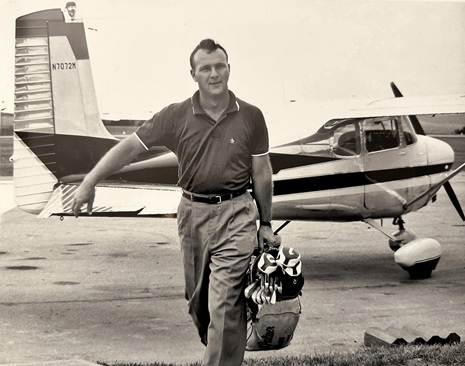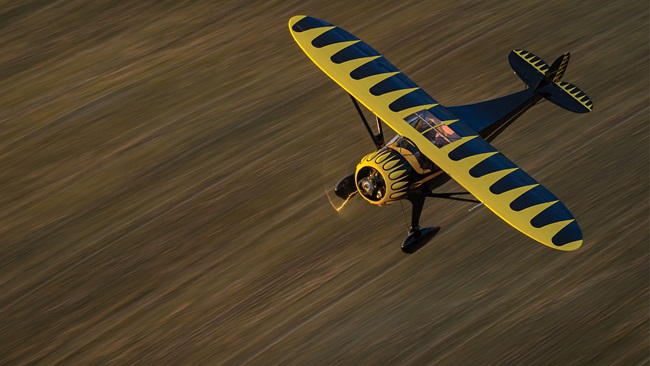Populating the skies
Tennessee foundation has flown 10,000 passengers
You won’t see a question on a U.S. Census form asking whether you have flown in a general aviation airplane. If there were such a query, Unicoi County, Tennessee, would stick out like a sore thumb when they tallied up the answers.
There’s a simple explanation why the eastern Tennessee county—population 18,313 at the last Census—would spike a chart measuring populations of people below, let’s say, age 45 who have flown GA.
On June 16, Powley reached a milestone he never could have foreseen at the beginning: flying passenger number 10,000 (and a couple of others), in a rented Cessna 172 from Greeneville-Greene County Municipal Airport. Dignitaries present to honor the occasion included Tennessee Aeronautics Commissioner George Huddleston Jr.; Greeneville Mayor W.T. Daniels; Impact Plastics CEO Gerry O’Connor; State Rep. David Hawk; U.S. Army Legion of Merit recipient Col. Tom Reeves; State Sen. Rusty Crowe; Daryl Brady, a staff assistant to U.S. Rep. Phil Roe; and the three Air Force JROTC Cadets who flew with Powley on the noted flight: Jeremy Hankins, George Rapp, and Isaac Michalenko.
The flight had been expected in May, until bad weather intervened. With the word out that the big round number was close at hand, an interval of suspense ensued for the county’s aerospace-education initiative that launched its first flight in April 1992. More than 3,500 flights followed, mostly flown by Powley, a former F–4, A–7, and F–16 fighter pilot and Vietnam veteran.
The F.L.I.G.H.T. Foundation was founded in 1998. The next year it received a NASA grant, allowing it to expand its flight capabilities. In 2000 the program received a grant from the Tennessee Aeronautics Division, which has continued to fund the F.L.I.G.H.T. Foundation ever since.

“This grant money is used along with funds from local, regional, and national donations to sponsor the flight program,” the foundation said in the announcement of its milestone flight, adding that “since September 1996, 164 students have earned their solo wings (from 23 different high schools, and all sponsored by grants/donations).”
Although some students have gone on to fly, the program agenda doesn’t focus on adding numbers to the pilot population. An appreciation of aviation and airports is a goal, but it’s more about the people than the airplanes.
“With emphasis needed on math and science skills, F.L.I.G.H.T. Foundation uses aviation to develop character, instill discipline, and cultivate leadership and team-building skills. The foundation provides the basis for future careers in aviation and service to our country in the Armed Forces,” the organization’s website explains.
Powley hadn’t planned to become a civilian flight instructor in retirement, but the county ROTC program was in need of rejuvenation when he signed on shortly after earning his instructor and airline transport pilot credentials, he said.
Every vote counts
A 4-3 vote of the school board allowed the aviation curriculum into the ROTC program, and over the next few years, as interest grew, the county’s ROTC went “off probation” as a low-member program to become a distinguished unit, he said.
Powley’s work bringing aviation to youth had won widespread recognition long before the 10,000th passenger ever took flight. In 2010, AOPA reported Powley’s winning the twenty-fourth annual A. Scott Crossfield Aerospace Education Teacher of the Year Award, announced by the National Aviation Hall of Fame in Dayton, Ohio, and a fitting tribute to a 1967 graduate of the U.S. Air Force Academy, who has flown supersonic fighters, logged 347 combat missions, and is two-time recipient of the Distinguished Flying Cross. AOPA’s Aviation High School Initiative, part of the association’s You Can Fly program, also helps build and sustain aviation-based science, technology, engineering, and math programs in high schools, to provide a quality workforce to the aviation industry.
Powley also is the first recipient of the Tennessee Aviation Person of the Year, has received the Tennessee Career Contributions to Aviation Award, and was inducted into the Tennessee Aviation Hall of Fame in 2013 for the program.
As for the future, as far as he is concerned, Powley said, it’s on to student number 20,000—although for now, a middling goal of 11,000 passengers flown isn’t unreasonable.
For more information, visit the F.L.IG.H.T. Foundation’s website.



